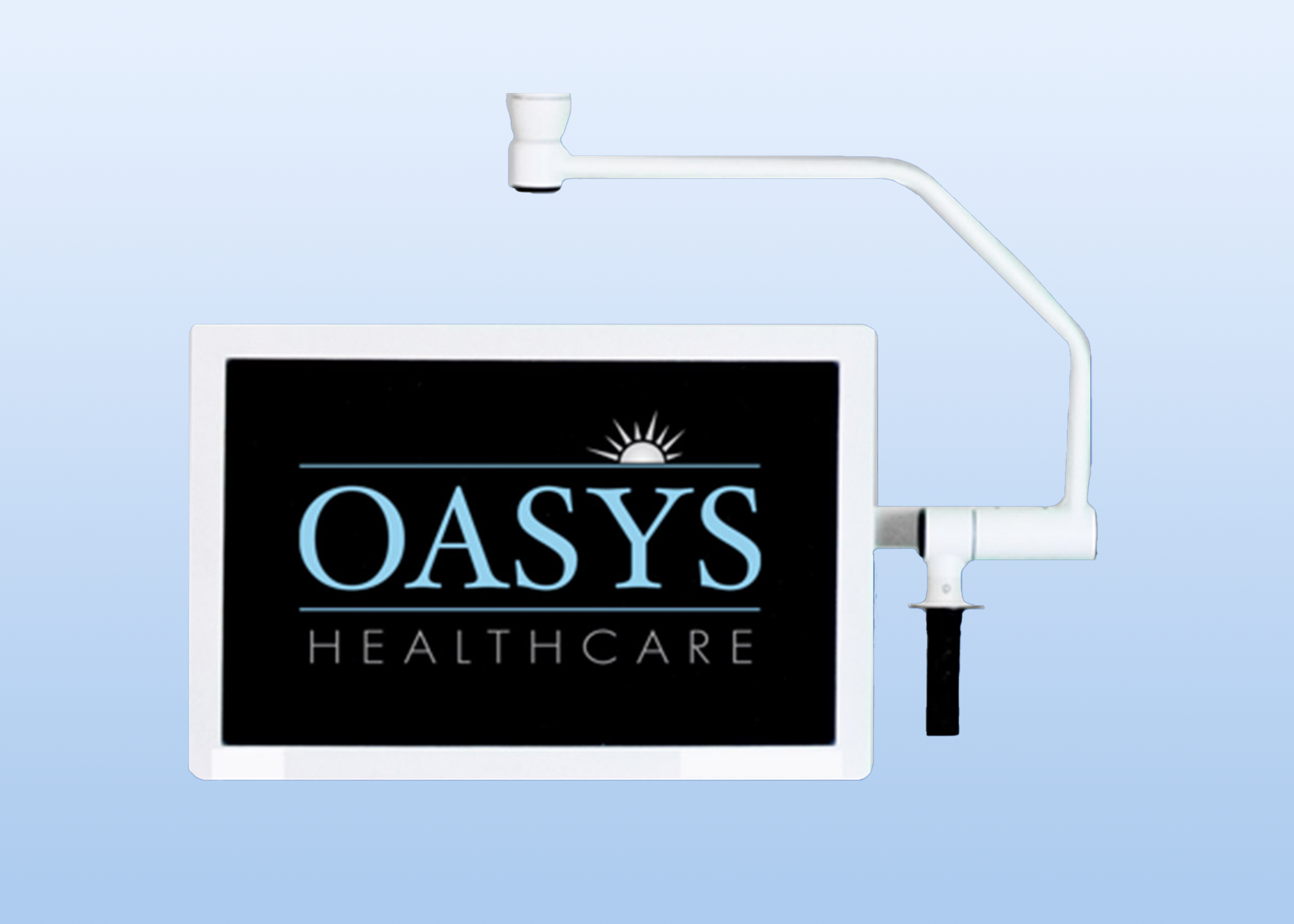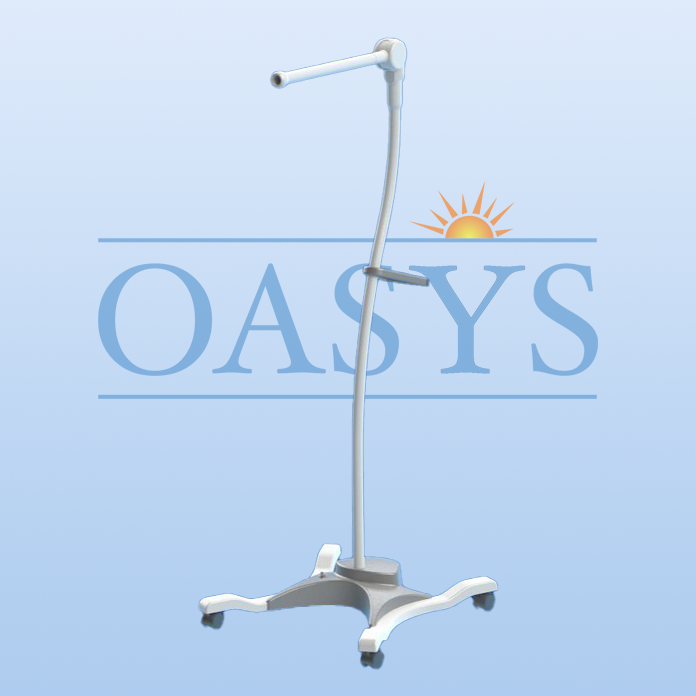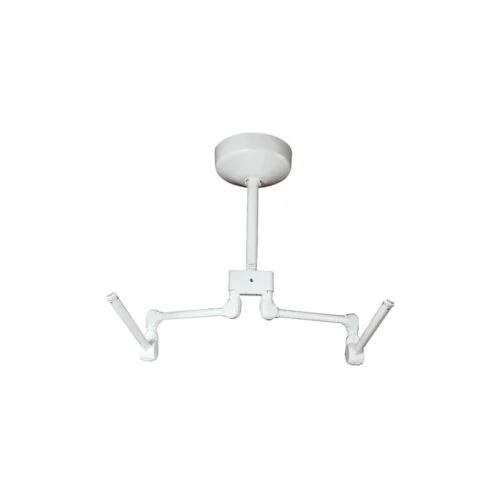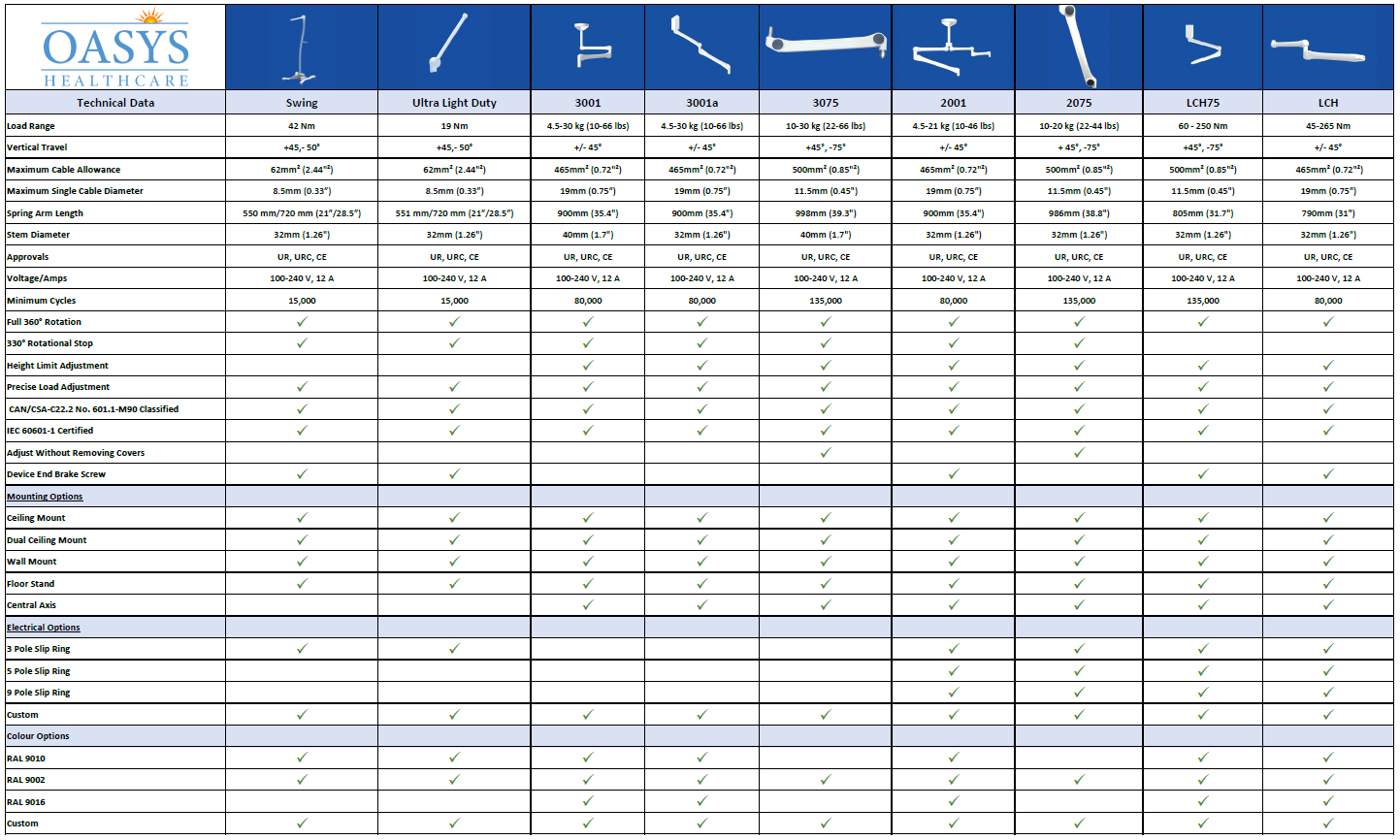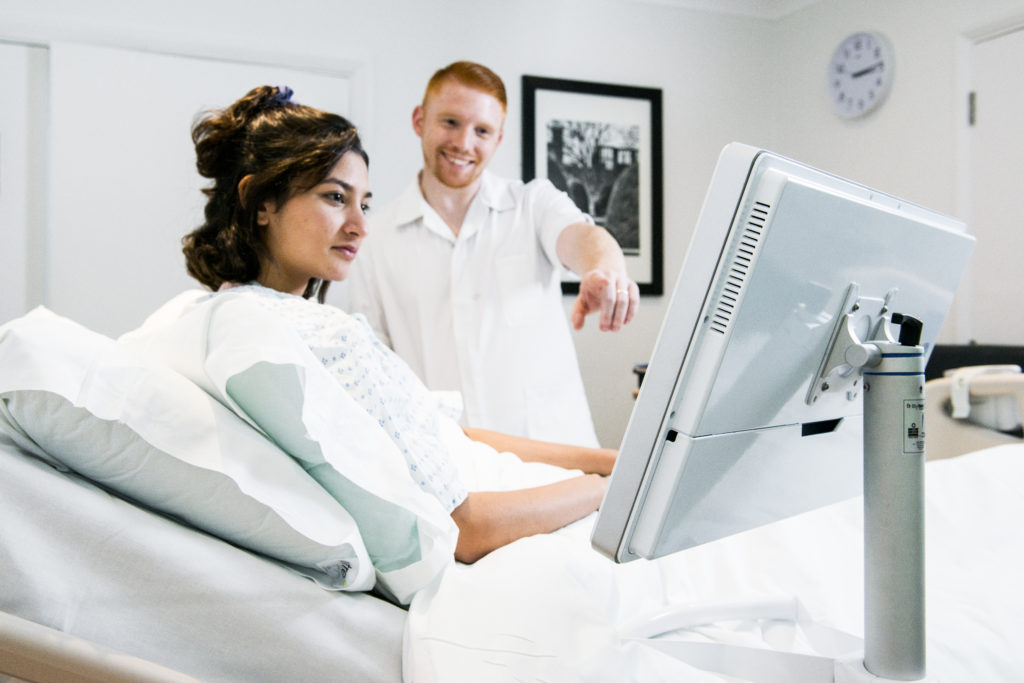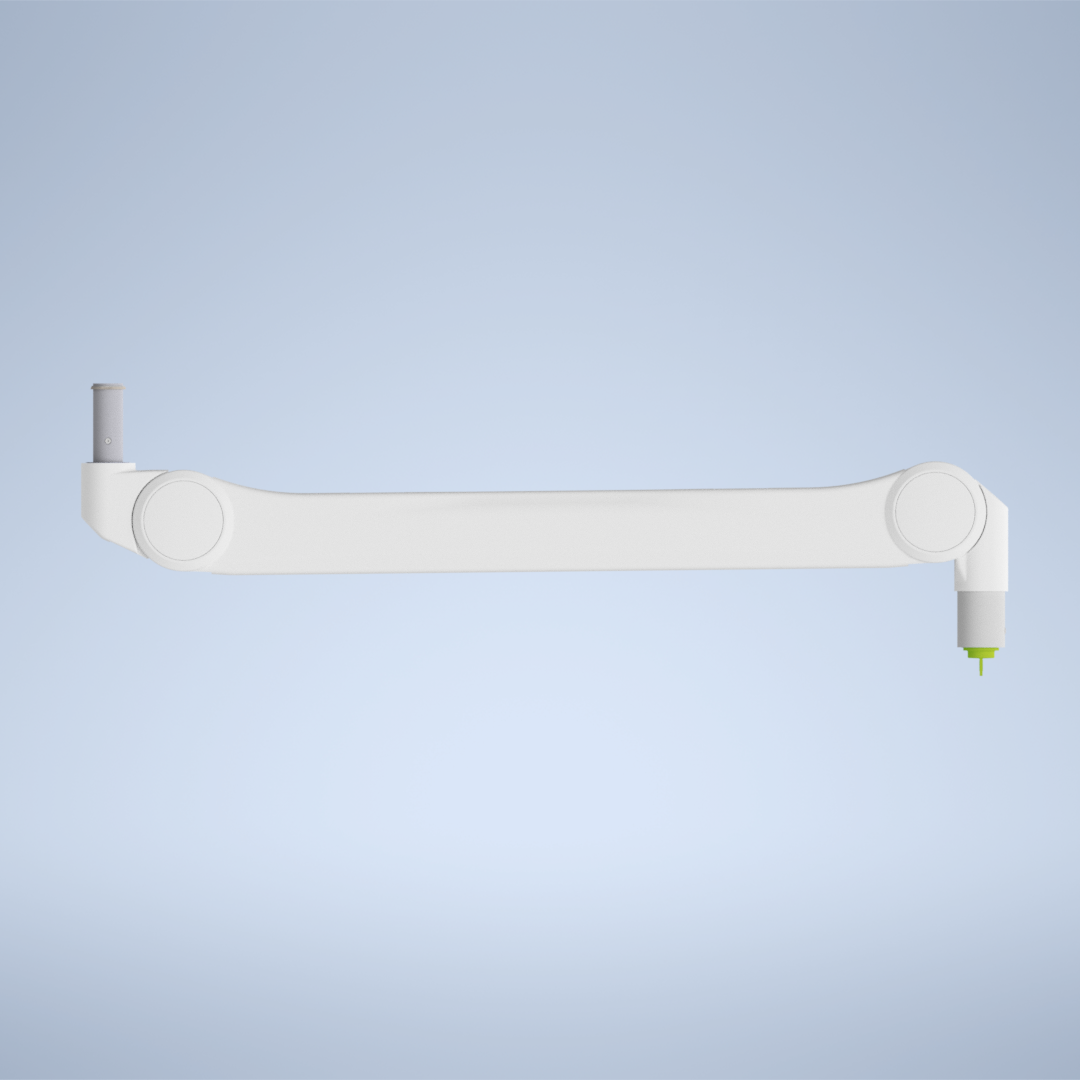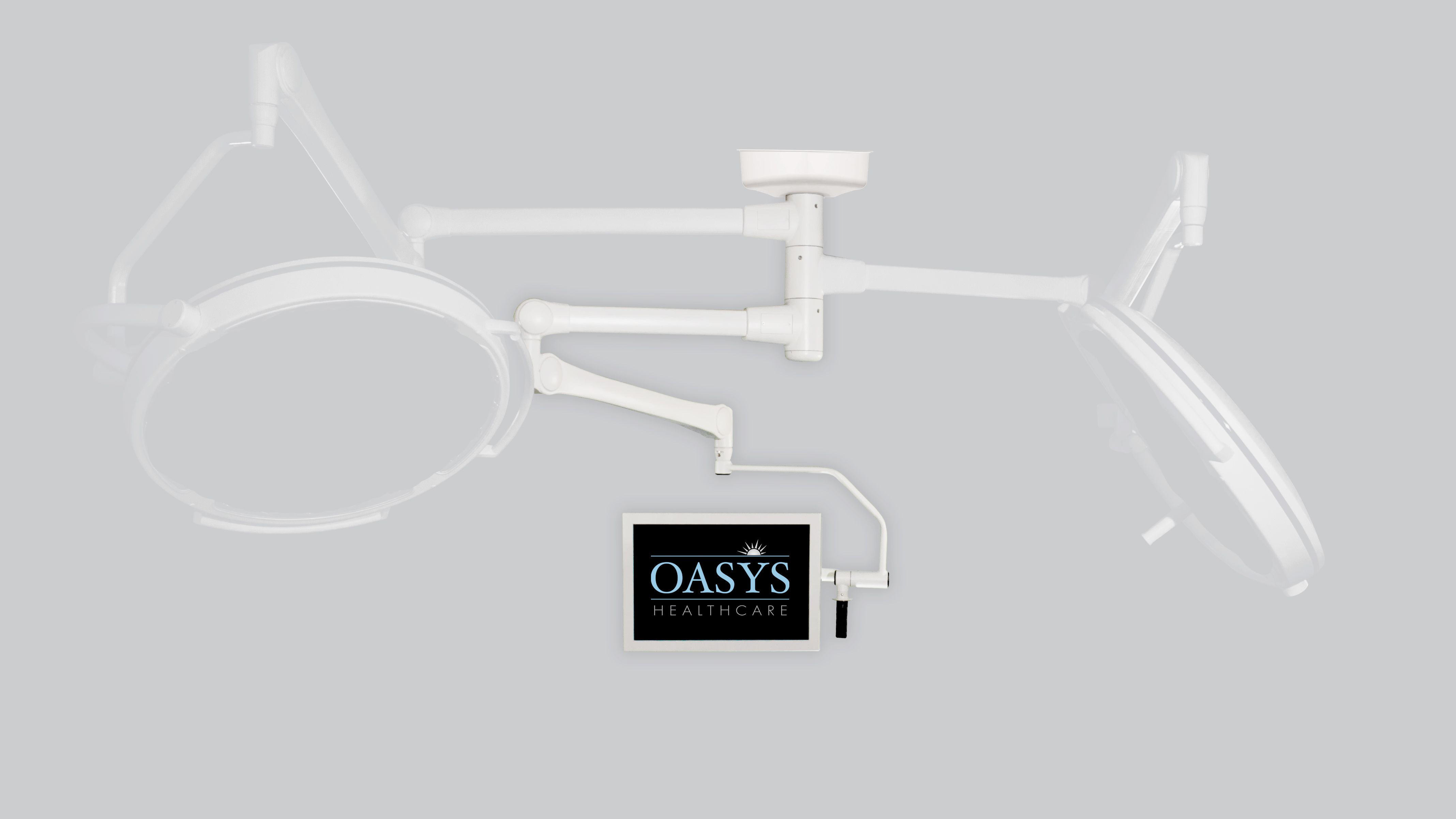OASYS Monitor Yokes
In today’s dynamic and technology-driven healthcare environments, the need for versatile, reliable, and user-friendly equipment is more critical than ever. OASYS Healthcare, a leader in medical technology solutions, continues to innovate with products designed to enhance efficiency and user experience. One such product is the OASYS monitor yoke, which offers unprecedented flexibility and functionality through its telescopic design and comprehensive features.
Telescopic Design for Versatile Monitor Mounting
The standout feature of the OASYS monitor yoke is its telescopic design, which allows it to accommodate monitors ranging from 19” to 32” with a single yoke. This versatility is a game-changer for healthcare facilities, reducing the need for multiple mounting solutions and enabling a more streamlined and efficient setup. Whether it’s a compact 19” monitor or a larger 32” display, the OASYS yoke can handle it all with ease.
This flexibility is not only beneficial for current setups but also allows for easy upgrades or changes in monitor sizes without the need for new mounting equipment. This adaptability is crucial in fast-paced environments where technology and equipment requirements can change rapidly.
Superior Cable Management: Out of Sight, Out of Mind
One of the persistent challenges in any tech-intensive workspace is managing the myriad of cables that come with various devices. The OASYS monitor yoke addresses this issue with a generous cable raceway designed to conceal multiple cables. This thoughtful design ensures that cables are neatly hidden from the end user, maintaining a clean and professional appearance.
The dual option cable management system offers additional flexibility. Users can choose to run the cables straight down to the monitor with minimal exposure or conceal them entirely within the raceway. This feature is particularly valuable in maintaining a clutter-free environment, which is essential for both aesthetic and practical reasons in healthcare settings.
Adaptability and Compatibility
The OASYS monitor yoke is engineered for compatibility with various OASYS spring arms, including the OASYS 2001, OASYS 3001, and OASYS 70 series. It also supports connections with other manufacturers’ spring arms, providing a versatile solution that can integrate seamlessly with existing equipment. This compatibility makes the OASYS yoke a versatile addition to any healthcare facility, enhancing its appeal and utility.
Enhanced Functionality and User Experience
The OASYS monitor yoke incorporates several innovative features designed to enhance functionality and user experience:
- Swivel VESA Connection: The new swivel VESA connection allows for easy adjustment of the monitor orientation from landscape to portrait mode.
- Dual Needle Design: The dual needle design facilitates easy control of the monitor’s pitch, allowing users to adjust the viewing angle effortlessly. This feature enhances the ergonomic use of monitors, which is crucial for reducing strain and improving comfort during extended use.
- Dual Brake Screw System: The new dual brake screw system provides a robust mechanism to lock the pitch, ensuring the monitor remains securely in place once adjusted. This stability is essential in maintaining the desired setup without frequent adjustments.
- Heavy Duty Rotation Stop: The yoke features a heavy-duty 330° rotation stop that has undergone rigorous testing to prevent breakage. This durability ensures long-term reliability, even in demanding environments.
- Smooth Rotation: Added coupler bushings facilitate smooth rotation when the yoke is connected to an arm. This feature ensures seamless adjustments and enhances the overall user experience.
Durability and Maintenance
The OASYS monitor yoke is built to withstand the rigors of healthcare environments. Its powder-coated finish is resistant to most hospital-grade cleaning solutions, ensuring it remains in pristine condition despite frequent cleaning and sanitization. This durability is a testament to OASYS Healthcare’s commitment to quality and reliability.
Commitment to Quality
At OASYS Healthcare, the mantra “Committed to Quality, Committed to You” is more than just a slogan. It is a guiding principle reflected in every product they develop. The OASYS monitor yoke is a perfect embodiment of this commitment, offering a blend of flexibility, functionality, and durability that meets the high standards required in modern healthcare settings.
Conclusion
The OASYS monitor yoke represents a significant advancement in monitor mounting solutions, combining a telescopic design with superior cable management, extensive compatibility, and enhanced user features. Its ability to accommodate a wide range of monitor sizes, coupled with its robust construction and thoughtful design, makes it an invaluable asset for healthcare facilities looking to optimize their workspaces.
For healthcare providers, the OASYS monitor yoke is not just a tool but a strategic investment that enhances operational efficiency, maintains a clean and professional environment, and adapts to future needs with ease. With OASYS Healthcare’s unwavering commitment to quality, the monitor yoke is poised to revolutionize how healthcare professionals interact with technology in their daily operations.

